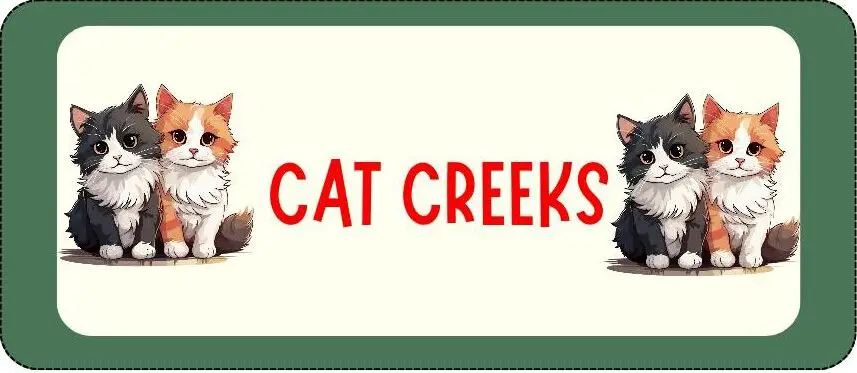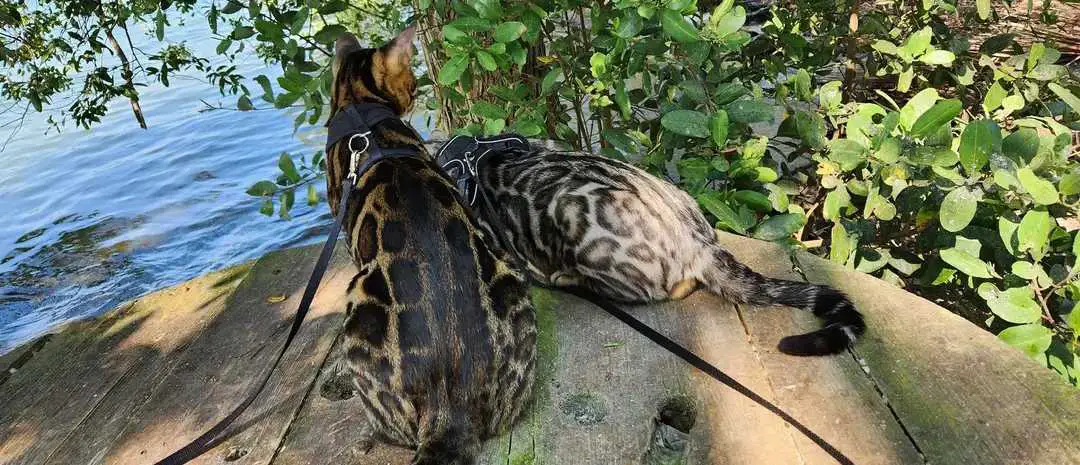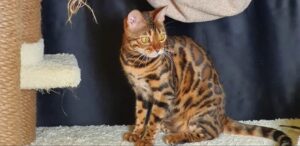Should I get a second cat is a common question among cat owners, there are many reasons you should and shouldn’t get a second cat.
In this post, I’ll be discussing some common reasons why you should get a second cat and some common reasons why you shouldn’t get a second cat…
Keep reading to find out more!
Should I Get a Second Cat
Whether or not you choose to get a second cat depends on several factors, including your lifestyle, the amount of space you have available, your current cat’s personality, and whether your cat is social and would benefit from a feline companion.
You should also make sure you have the time, money, and dedication necessary to care for two cats.
To address this question properly, I will discuss why I think you should get a second cat or why you shouldn’t get a second cat.
Let’s start with why you should get a second cat…
Reasons you should get a second cat
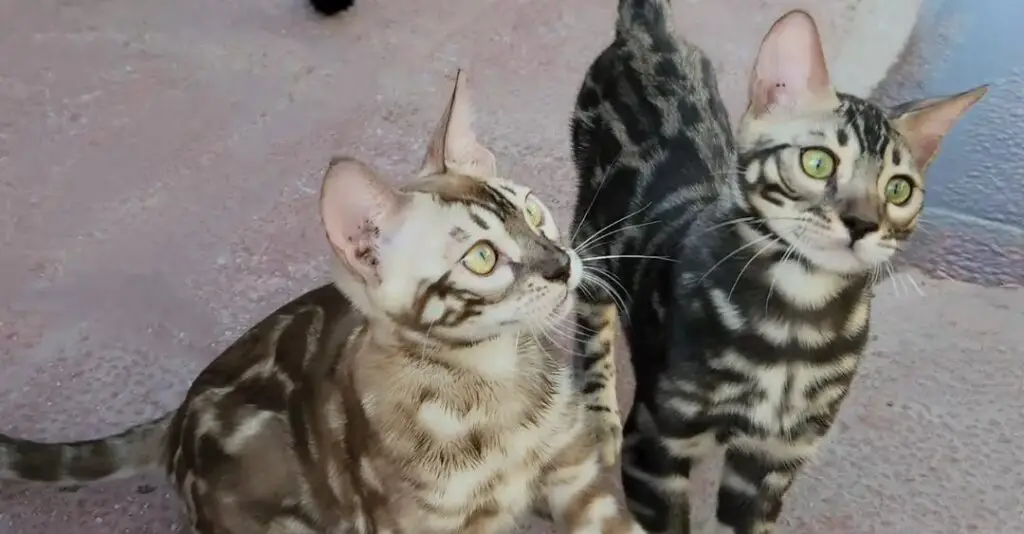
In my opinion as a cat owner, here are some of the most common reasons you should get a second cat:
To provide companionship for your first cat
Cats are social creatures, and they really enjoy having a furry buddy to hang out with, if your first cat is spending a lot of time alone while you’re at work or out and about, a second cat can provide the perfect playmate.
They can chase each other around, snuggle up together for naps, and keep each other entertained, as your first cat will have a constant companion, and you’ll get to enjoy watching their adorable antics.
Cats are also very curious animals, and having a second cat around can stimulate their natural curiosity and encourage them to explore their environment more.
They may discover new hiding spots, play with new toys, and generally just have more fun when they have a friend to share it with.
To help prevent separation anxiety in your first cat
Separation anxiety is a real thing for cats, and it can be heartbreaking to see your furry friend stressed out when you’re not around.
A second cat can help alleviate those feelings by providing a built-in friend, they can keep each other company, play together, and generally just be there for each other.
This can help your first cat feel more secure and less anxious when you’re not home, cats are also very social animals, and they thrive on interaction and attention.
If your first cat is used to getting all of your love and affection, they may start to feel neglected or jealous when you bring a new cat into the home.
Having a second cat around can help distribute that attention and affection more evenly, which can help prevent any potential behavior issues.
To help your first cat develop better socialization skills
Cats are natural-born hunters, but they also need to learn how to play nicely with others through socialization.
Having a second cat around can help your first cat develop better socialization skills, they’ll learn how to read body language, take turns, and engage in appropriate play.
This can make your first cat more confident and well-adjusted, and it can also help prevent any potential behavior issues down the line.
Cats also have different personalities, and having a second cat around can help your first cat learn to adapt to different types of social interactions.
They may learn to be more patient with a more playful or energetic cat, or they may learn to be more assertive with a more timid or shy cat.
This can help them become more well-rounded and adaptable in their social interactions
A second cat can help alleviate boredom for your current cat
Let’s face it, cats can get sometimes bored, if your first cat is spending a lot of time napping or staring out the window, a second cat can help break up the monotony.
They can play together, chase each other around, and generally just keep each other entertained, this can help prevent boredom-related behavior problems and keep your cats happy and healthy.
Cats are also very intelligent animals, and they need mental stimulation to stay happy and healthy, having a second cat around can provide that stimulation in the form of play, exploration, and social interaction.
They may learn new tricks together, or they may just enjoy playing hide-and-seek around the house. Either way, it can help keep your cats’ minds active and engaged.
Having a second cat will help in giving the new cat a new home
When you decide to bring a second cat into your home, you are not just adding to your family; you are offering a second chance to a cat in need.
Shelters and rescue organizations are often overflowing with cats looking for forever homes, therefore, you will be helping to reduce cats at shelters if you get a second cat.
By adopting a second cat, you are providing a safe, loving environment for a cat that may have faced uncertainty or hardship in the past.
Your home becomes a sanctuary where your new cat can feel secure, loved, and cherished.
The act of giving a cat a new home is not only fulfilling for you but also life-changing for the cat you welcome into your family.
Caring for two cats can teach and reinforce responsibility
Caring for multiple cats requires a level of responsibility that can be incredibly rewarding, and this can also help your everyday life.
From ensuring they have a balanced diet to keeping up with their grooming needs and providing enriching playtime, you are instilling a sense of duty and care in yourself.
Moreover, having two cats can create a strong bond between them, offering companionship and social interaction that is vital for their well-being.
Cats are social animals, and having a feline friend can prevent feelings of loneliness and provide mental stimulation, leading to happier and more contented pets.
Having a second cat can mitigate or reduce behavioral issues
Introducing a second cat into your household can have a positive impact on your current cat’s behavior, this from experience is because both cats can keep each other company, which will prevent behavior issues.
Cats can exhibit behavioral problems when they are bored, anxious, or lack stimulation, with a companion to interact with, your cats can engage in natural feline behaviors like playing, grooming, and socializing.
Getting a second cat will help reduce stress levels, prevent destructive behaviors like scratching furniture or excessive meowing, and create a harmonious environment where both cats feel secure and fulfilled.
The presence of a second cat can help establish a routine and structure that promotes healthy behavior in both felines.
A second cat can help exercise opportunities for your current cat
Based on my experience living with cats, I can tell you that getting a second cat will open up an endless supply of play and exercise possibilities for the two cats.
Being agile, inquisitive, and playful animals, cats may play interactive games, chase one another around, and explore their environment in tandem with a playmate.
They remain strong and healthy as a result of their increased physical activity, which also gives them the cerebral stimulation they need for general well-being.
Whenever my neighbor visits me, my cat Oscar always plays with my neighbor’s cat until my neighbor leaves with his cat.
So I can tell you from experience that getting a second cat with a good personality will help provide exercise opportunities for your first cat
Reasons you shouldn’t get a second cat
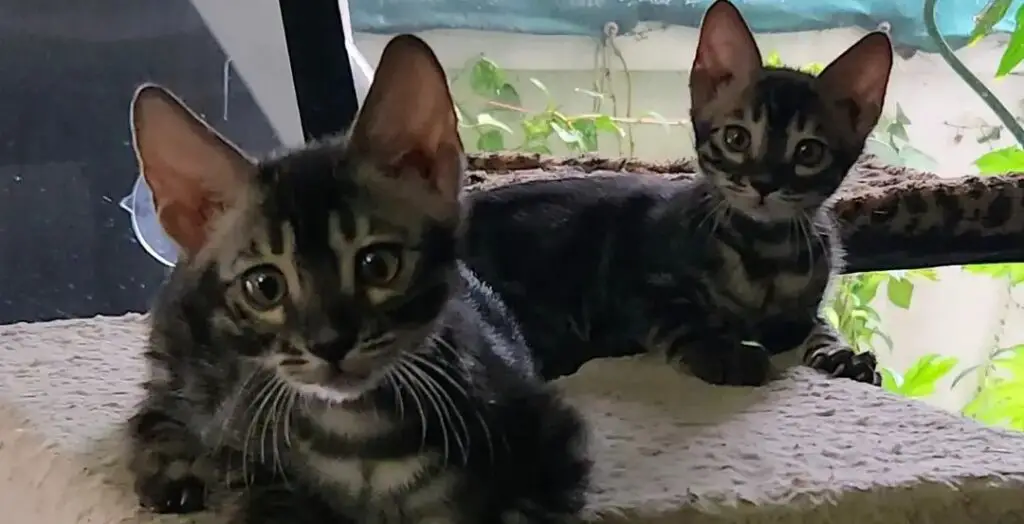
In my opinion, here are some common reasons you shouldn’t get a second cat:
Getting a second cat will lead to more responsibility
Bringing a second cat into your home means taking on additional responsibilities in terms of feeding and grooming.
Each cat has its own dietary requirements and grooming needs, which may vary based on age, breed, and health conditions.
Ensuring that both cats receive the proper nutrition, grooming, and healthcare can require careful planning and organization to meet their individual needs effectively.
It’s essential to consider whether you have the time and dedication to provide the necessary care for multiple cats consistently.
Getting a second cat will lead to increased expenses
Having a second cat can lead to a significant increase in expenses.
Beyond the initial adoption or purchase cost, you’ll need to budget for additional food, litter, toys, grooming supplies, veterinary visits, and potential medical emergencies.
It’s important to factor in these ongoing costs and assess whether your financial situation can accommodate the added financial burden of caring for multiple cats without compromising their well-being or your own financial stability.
Getting a second cat will lead to more time commitment
While cats are known for their independence, getting a second cat will require more time and attention from you as their caregiver.
Each cat may have different play preferences, socialization needs, and health requirements that demand individualized care and interaction.
Spending quality time with each cat, monitoring their behavior, and addressing any issues that arise can require a significant time commitment to ensure they receive the attention and care they deserve.
Getting a second cat can lead to disruption of household dynamics
Introducing a new cat into your home can disrupt the existing dynamics among your current pets.
Cats are territorial animals, and the introduction of a new cat can trigger territorial disputes, competition for resources, and changes in social hierarchies.
It’s essential to carefully manage the introduction process, provide separate spaces for each cat, and monitor their interactions to prevent conflicts and ensure a smooth transition to a multi-cat household.
Patience, consistency, and positive reinforcement are key to helping cats adjust to sharing their space and establishing harmonious relationships with each other.
Getting a second cat can lead to territorial disputes among cats
Cats are naturally territorial animals, and the introduction of a new cat can disrupt the established hierarchy and territory of your current feline friend, from my experience living with cats this can lead to conflicts, fights, and stress for both cats.
Territorial disputes can manifest in various ways, such as hissing, growling, and even physical altercations.
It’s essential to carefully manage introductions and provide separate spaces for each cat to help minimize territorial disputes.
This includes separate food and water bowls, litter boxes, and resting areas.
Failure to establish clear boundaries and provide a safe environment for both cats can result in ongoing conflicts and a stressful living situation for everyone involved.
Getting a second cat will lead to increased cleaning and maintenance
With an additional cat comes more litter boxes to clean, more fur to manage, and potentially more messes to deal with, so if you are getting a second cat be prepared for the extra time and effort required to keep your home clean and maintain a harmonious environment for all your pets.
Cats are fastidious groomers, and their shedding can quickly accumulate, requiring more frequent vacuuming and lint rolling.
Additionally, getting a second cat means more litter boxes, which need to be scooped regularly and thoroughly cleaned to prevent odors and maintain good hygiene.
Failure to keep up with the increased cleaning and maintenance can lead to unsanitary conditions and potential health issues for your cats.
Adding a second cat means you need to divide your time between them
As a cat owner, I can tell you that cats, like any pet, require attention, playtime, and affection, and adding a second cat means dividing your time and energy between them, ensuring each cat receives the care and interaction they need to thrive.
It’s important to consider if you have the capacity to meet the needs of multiple pets before getting a second cat as cats are social creatures and enjoy interactive playtime with their owners.
With two cats, you’ll need to find ways to engage both of them individually, which can be time-consuming, additionally, each cat may have unique needs, such as medication or special dietary requirements, further complicating the time management aspect.
If you’re already stretched thin with your current cat, adding a second one may not be the best decision.
Getting a second cat can lead to jealousy and rivalry among cats
Cats can be territorial and possessive when kept together with other cats, so introducing a new cat can trigger feelings of jealousy and rivalry among your existing cat(s), leading to behavior issues and stress.
I strongly recommend you monitor their interactions and provide plenty of individual attention to prevent conflicts when introducing two cats.
Based on my experience with cats, I can tell you that jealousy in cats can manifest in various ways, such as aggressive behavior towards the new cat, refusing to share resources, or even redirecting aggression toward their owners.
Rivalry in cats from my experience with cats can lead to competition for resources, such as food, water, and resting spots, causing stress and tension within the household.
Failure to address these issues can result in ongoing conflicts and a stressful living situation for both cats and their owners.
Read more about keeping your cats healthy.
Conclusion
Finally, having a second cat may give a whole new dimension of happiness and camaraderie to your feline family.
Your cats will have a playmate, but you’ll get twice as many hugs and amusement out of them. So, take advantage of this wonderful chance to grow your furry community!
